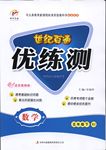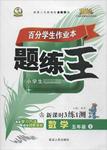题目内容
In England, afternoon tea is the most informal (非正式) meal of a day. It is taken between four and five. If you are a friend of the family, you may come for tea at any time. Very often it is not taken at a table. The members of the family and visitors take the tea in the sitting room. Each person has a cup and saucer (茶盘), a spoon (调羹) and a small plate for bread and butter (黄油) and cakes. By the way, do not help yourself to cakes first, bread and butter first, and then cake. Do remember: Though you can eat as much as you want, do not put more than(超过) one piece of bread or cake on your plate each time.
【小题1】In England, afternoon tea is usually taken
A. between breakfast and lunch B. in the middle of a day
C. early in the afternoon D late in the afternoon
【小题2】A real English afternoon tea has .
| A.tea only | B.both tea and food |
| C.tea, food and vegetables | D.the same things as other meals |
| A.you must send a message before you go |
| B.you must take food with you |
| C.you must go only when he asks you to |
| D.you may put only one piece of bread or cake on your plate each time |
| A.cakes first | B.bread and butter first |
| C.either bread first or cake first | D.only one piece of bread or cakes . |
| A.People don't use the same spoon for afternoon tea. |
| B.Afternoon tea is often taken in the sitting room. |
| C.For afternoon tea, people use cups only. |
| D.Afternoon tea is often taken with bread and cakes. |
【小题1】D
【小题2】B
【小题3】D
【小题4】B
【小题5】C
解析试题分析:文章介绍了下午茶文化,在什么时候什么地点和下午茶,下午茶都有什么,还有什么禁忌。
【小题1】细节题:从第一段的句子:It is taken between four and five.可知下午茶是午后喝的。选 D
【小题2】细节题:从文章的句子:Each person has a cup and saucer (茶盘), a spoon (调羹) and a small plate for bread and butter (黄油) and cakes.可知下午茶有茶也有食物。选B
【小题3】细节题:从文章的句子:Though you can eat as much as you want, do not put more than(超过) one piece of bread or cake on your plate each time.可知每次盘子里只能有一块面包或蛋糕。选D。
【小题4】细节题:从文章的句子:do not help yourself to cakes first, bread and butter first,可知要先吃面包和黄油。选B
【小题5】排除题:从文章的句子:Each person has a cup and saucer (茶盘), a spoon (调羹) and a small plate 可知除了杯子还有勺子和盘子。选C
考点:考查文化类短文
点评:本题很简单,题目设置合理,主要考查细节题,要求考生根据题目要求,在文章中准确定位。进行推理。

 世纪百通主体课堂小学课时同步达标系列答案
世纪百通主体课堂小学课时同步达标系列答案 世纪百通优练测系列答案
世纪百通优练测系列答案 百分学生作业本题练王系列答案
百分学生作业本题练王系列答案



